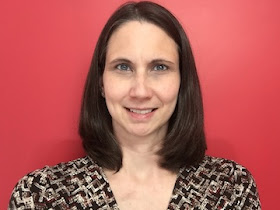 |
| Karen Daley
Photo credit: Nicolaus Czarnecki
|
Curry College reports that Karen Daley spent more than 25 years as a staff nurse at Brigham and Women's Hospital in Boston until a needlestick injury infected her with HIV and hepatitis C.
An article written by Lindsay Kalter for the Boston Herald reports that Karen said:
"When I was first diagnosed, one of my nightmare fantasies was that I would fall, hit my head, start bleeding and not be able to warn someone”.
"So Daley shifted her focus. After she told close friends and family — she is one of seven siblings — Daley began researching needlestick injuries. She learned that, at the time, there were close to 600,000 each year in hospitals alone. Only about 15 percent of hospitals were making safer devices, like needle caps, available for workers."
"Daley began grueling treatments as she launched her lobbying efforts. Her hair thinning and skin a pale gray, she helped pass the mandatory reporting legislation in Massachusetts in 1999. The Bay State sees about 3,000 needle injuries each year."
"A year later, Daley testified before Congress in favor of a bill that would take needle safety measures from recommended to mandatory at health care facilities across the country. She was invited to the Oval Office to watch then-President Bill Clinton sign the “Needlestick Safety Prevention Act” into law on Nov. 6, 2000."
Her commencement address at Curry College included the following message to graduates:
"When life takes unpredictable turns, when things happen that don’t make sense and aren’t in your plans, it’s not about life being unfair,” Daley said. “It’s how you find meaning and purpose in spite of that. Through it.”
Click on the links below to read more about Karen and her advocacy efforts.
Thank you Karen for giving so much of yourself and helping to make our workplaces safer!!!
Bravo!
Donna


